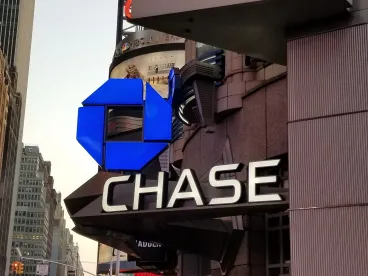On May 1, 2023, the Federal Deposit Insurance Corporation (“FDIC”) seized control of First Republic Bank (“First Republic”) and then, as receiver of First Republic, entered into a purchase and assumption agreement (“P&A”) with JPMorgan Chase Bank, National Association, Columbus, Ohio (“JPM”), to assume all of the deposits and substantially all of the assets of First Republic, including qualified financial contracts (“QFCs”). The asset transfer was thus carried out via the P&A Agreement, in accordance with the Federal Deposit Insurance Act (“FDIA”) and became effective without the consent of counterparties under those QFCs.
Previously, subsequent to the failure of Silicon Valley Bank (“SVB”) and Signature Bank (“Signature”), on March 13, 2023, the FDIC also facilitated the transfer of QFCs from the failed banks to newly established bridge banks, Silicon Valley Bridge Bank, N.A. and Signature Bridge Bank, N.A., respectively, and ultimately to First Citizens BancShares, Inc. and Flagstar Bank, respectively. While the transfer of First Republic’s QFCs to JPM was similar in most respects to the SVB and Signature transfers, there is at least one significant difference: JPM, unlike First Republic or the SVB and Signature successor entities, is a provisionally registered swap dealer with the Commodity Futures Trading Commission (“CFTC”), a security-based swap dealer with the Securities and Exchange Commission (“SEC”) and has a U.S. Prudential Regulator (“USPR”).
Importantly, a swap dealer, such as JPM, is subject to certain provisions of the Commodity Exchange Act (“CEA”) as well as certain regulations by USPRs that do not apply to non-swap dealers (such as First Republic). Its counterparties should assess the potential legal and economic implications resulting from the transfer of their QFCs to JPM, as well as the necessary next steps. We note that, from a practical perspective, given JPM’s prominence in the financial markets, many counterparties that were trading swaps with First Republic likely have existing swap trading relationships and documentation (such as ISDA Master Agreements (“ISDAs”) and related Credit Support Annexes (“CSAs”)) in place with JPM. The focus of this summary is on QFCs that qualify as swaps.
For Non-Swap Dealer Counterparties of First Republic
First Republic was not a CFTC-registered swap dealer. Therefore, where it faced another non-swap dealer, First Republic presumably did not collect regulatory variation margin (“VM”) or initial margin (“IM”) in connection with swaps exposure. Non-swap dealers that now face JPM should be aware that as a swap dealer, JPM must establish bilateral exchange of regulatory VM and collect IM from CPs that are “Financial End Users” (as defined in the USPR margin rules, “FEUs”) with “Material Swaps Exposure” (as defined in the USPR margin rules, “MSE”). Even if First Republic and a counterparty maintained a CSA that provided for the contractually agreed exchange of margin and/or collateral, its terms are not likely to be the same as for regulatory VM and IM.
Therefore, some form of regulatory relief from USPRs, such as the Office of the Comptroller of the Currency (“OCC”) as the relevant regulator of JPM, would be appropriate to resolve the tension between the counterparties’ contractual obligations under the legacy swap documentation and JPM’s regulatory obligations as a swap dealer. From a policy perspective, such relief would be consistent with the “grandfathering” of legacy swaps when the regulatory margin requirements first went into effect. In that case, the relief was appropriate because the law changed; here the relief is appropriate because the facts (i.e., the counterparty) changed. In both cases, the change would affect the economics of the contract without consent.
As with any novation or assumption, the transfer of each swap contract from First Republic to JPM should qualify as a “life-cycle event” and, as such, would need to be reported to a swap data repository (“SDR”). JPM will be responsible for such reporting as a provisionally registered swap dealer. Also, ISDAs and confirmations transferring to JPM will require significant documentation changes, including revisions to representations, notice provisions, deliverable documents, legal entity identifiers, appropriate ISDA protocols, safe harbors and elections under the Dodd-Frank Wall Street Reform and Consumer Protection Act.
For Swap Dealer Counterparties of First Republic
Where First Republic’s counterparty was a registered swap dealer, that swap dealer now faces JPM, another swap dealer. Given JPM’s prominence in the derivatives markets, it is highly likely that counterparty already has a swaps trading relationship with JPM, such as documented under the ISDAs. The two swap dealers will need to reconcile the two sets of documentation (i.e., the preexisting and the one transferring from First Republic), including the scope of “margin affiliates,” their margining models for one another, netting and set off provisions for their swaps trading relationships, and whether the transferred swaps will be aggregated with existing swaps or sit in a separate portfolio. Even though there are provisions in the CFTC and USPR uncleared margin rules that allow separate portfolios for netting purposes, guidance from the USPRs and CFTC for CFTC-only registered swap dealers will provide clarity in these unprecedented circumstances.
Additionally, just as is the case for non-swap dealer counterparties, the transfer of each swap contract from First Republic to JPM should qualify as a reportable “life-cycle event.” The swap dealers will determine which party will carry out the reporting. The swap dealers will also need to amend their documentation to reflect JPM as the counterparty to the transferred swaps.
In conclusion, the transfer of First Republic’s QFCs to JPM in connection with the FDIC’s receivership under the P&A Agreement did not involve the consent from First Republic’s counterparties. The resulting regulatory and contractual issues should be addressed as soon as is practicable. In the interim, market participants would benefit if the CFTC, USPRs and SEC (with respect to security-based swaps) issued no-action relief (similar to the CFTC’s relief in connection with the SVB and Signature failures) and refrained from initiating enforcement actions against market participants caught up in the QFC transfers.
(The authors wish to thank counsel Michael Ena for his important contributions to this news item.)






 />i
/>i


